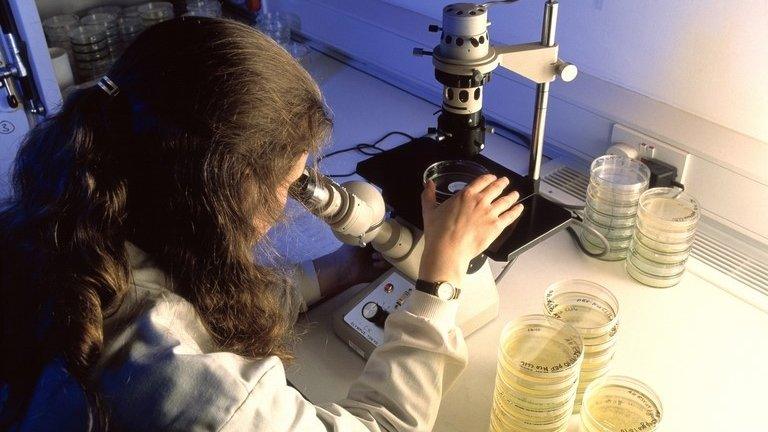Fewer trials for young cancer patients in Scotland
- Published

Less than a third of clinical trials running UK-wide are currently available in Scotland
Young people with cancer in Scotland have fewer clinical trials available to them, according to a new study.
Researchers found that less than a third of experimental clinical trials in the UK were available in Scotland.
The data also showed that only 19 of the 39 trials which could help patients under the age of 16 were available.
Campaigners at Cancer Research UK said the lack of trials for younger patients in Scotland was "deeply worrying".
The figures were revealed at the National Cancer Research Institute (NCRI) conference in Liverpool on Tuesday.
One author of the study and chairwoman of the NCRI Teenage and Young Adults Clinical Studies Group, Dr Angela Edgar, said: "Our study confirms that children and young adults in Scotland have fewer clinical trials available to them compared to the rest of the UK.
"The most disadvantaged are 16-24 year olds.
"There are fewer trials for them to begin with, and unlike younger children, they are often treated at centres where trial recruitment in this age group may be unfamiliar and overlooked."
'Lack of information'
Researchers in Edinburgh looked at clinical trials data from the UK Clinical Research Network Cancer Trials Portfolio, and found that, of the 534 clinical trials suitable for patients aged 16-24, only 152 were available in Scotland.
Problems can arise when hospitals only treat a small number of young cancer patients, as staff may not be used to recruiting this group for clinical trials, according to the NCRI.
It also said there was a lack of information about clinical trials available for younger patients, making it more difficult for hospitals to refer patients.
NCRI clinical research director Professor Matt Seymour said: "Compared with most countries, cancer patients in the UK are much more likely to be offered the chance to take part in clinical research as part of their treatment.
"Participating in research is a 'win-win': it brings direct benefits by ensuring you get access to modern treatment and intensive support; but it is also the best way to contribute to improving treatment for patients in the future.
"So, it is hugely important to highlight groups where we could do better and Dr Edgar's study throws down a challenge to increase the access to research for young people in Scotland."
- Published14 May 2015

- Published26 June 2015
